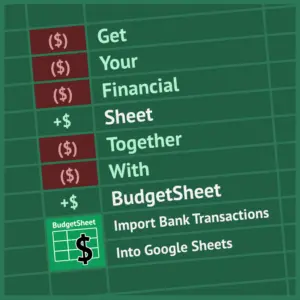
Chelsea Clarke is a Content Monetization Strategist and business broker. She helps investors acquire profitable niche online businesses at her brokerage BlogsForSale.co, while providing an avenue for digital and handmade creators to have gainful exits from those businesses. Chelsea teaches marketing and growth-hacking strategies at HerPaperRoute, and is on a mission to help creative entrepreneurs make more paper in business.
As creatives, we discover our place in entrepreneurship for a number of different reasons. For some of us, we are drawn to the business and marketing side first, finding a passion amongst the strategy, the numbers, and the growth-hacking involved. For others, we were drawn in by our love of what we create, the products themselves, and the business elements factor in later.
Running a handmade business (or digital, for that matter) requires a lot of time, effort, and passion from the creator behind it. And more times than not, that once strong, fiery passion can start to dim as time goes on. Yet there comes a point in any creative entrepreneur’s journey that we need to ask ourselves, “do I need or want an exit plan?”
Often this question isn’t considered until after something has gone wrong. Say, after you’ve experienced a poor sales season, had a personal health issue, or you’ve realized that you are experiencing burnout. That’s when you start to question if this is really the business you want to run for the rest of your life. Would you rather run a different business? Or retire from the sale of your existing business?
But burnout, hardship or loss of passion certainly aren’t the only reasons why business owners decide to sell. In fact, many creators decide to sell for positive reasons and get out while the going is good. Sell while the business is doing well, and you can walk away with a great profit, and newfound freedom to put towards your next venture.
And some sell because that was their intention from the beginning. They developed the business for the purpose of selling it to someone else. Just like people flip houses, website flipping is a common practice too!
Truthfully, it’s never too early to have an exit plan in mind. Here are some clues that it may be the right time for you to sell, and move on from your current business.
1. You Don’t Feel The Passion You Once Felt For Your Business
When you launched your company you were over the moon excited about it. You went to bed every night with your imagination running a mile a minute with ideas, and every morning you jumped out of bed fired up to get to work. Even the most monotonous task made you happy because you were living your passions and building your dream.
But lately, you are noticing that those feelings have been few and far between. The tasks you used to be so lit up by now feel more like chores, and the fire you once had for this project seems to have dwindled.
Now instead of designing, writing, or making your products you are making excuses to not work. Or worse, you are working, but you’re miserable and resenting the business.
This doesn’t necessarily mean that you have lost your passion for business altogether. It may just mean that your place in this business has run its course. It may be time to move on and reignite your passions in a new venture.
2. Your Focus Is Elsewhere
If you have been noticing that you are feeling called to something else – something that makes you happier, pay attention! This is a big indicator that it may be time to change paths.
When we start our first business, it’s normal to think that it will be the thing we will enjoy for a long time. But more times than not, it isn’t! And quite often we will need to try out a few businesses before we really figure out the thing we love.
Pay attention to where your focus is leading you. There may be a new business venture there to explore. Remember, you don’t have to stay committed to a business that isn’t lighting you up, and you shouldn’t feel guilty about it, either.
It’s OK to change course, try new things and grow in a different way than you had originally planned.
3. You’ve Hit A Wall
Many sellers who I work with are selling their business because they feel that they personally have taken it as far as they can. They have reached a point where they feel their skills or experience has reached a cap. And moving forward, the business would be better suited in the hands of someone else with different capabilities, who could grow it further.
If you are lying awake at night feeling at a loss for what to do to grow your company, that’s OK.
As entrepreneurs, we wear many hats but we can’t possibly do everything it takes to scale.
In fact, not everyone wants to scale their company forever. Knowing when to call it quits and let someone else take over is a blessing.
- Do you have the desire to learn the marketing and business skills needed to take the business to the next level yourself?
- Or you are willing to pay to outsource the job to a team member?
If your answer to both is no, then it may be time to sell, and allow someone else to develop the business. You can relieve yourself of this feeling, sell, and get some sleep!

Helping a Jewelry Designer Sell Her Business for $69,000
In my profession, I get to work with many creative entrepreneurs. I teach business development online courses at HerPaperRoute, and I am also a business broker who helps small business owners sell their companies.
I founded a boutique brokerage called BlogsForSale.co, where we sell niche content websites, Amazon FBA and Shopify eCommerce businesses, and other digital assets. This is a space where handmade sellers and digital product creators can connect with investors who are looking to acquire companies both big and small.
Last year in 2020, during the pandemic, I put over $490,000 USD in the pockets of creators, by helping them achieve a profitable exit from their business.
One of the businesses we sold last year was an Amazon FBA business that offered handmade jewelry. The seller, Tara started the business from her home in 2007. She had a passion for designing wedding jewelry and made beautiful pieces.
Over the years, her jewelry business grew faster than she was prepared for. And before long, it was difficult to keep up with demand. Especially around the Holidays! Her company was successful, she was making money, but something didn’t feel quite right. As the years went on, she became more and more overwhelmed. In 2019 she realized that she was experiencing burnout.
Tara had reached a point when she realized that she needed to make a change. She considered hiring a team, but the idea didn’t sit right with her. She loved working from home, by herself, and didn’t want to change that.
She let the business sit for a few months. Orders for in-stock inventory were still coming in and being shipped by Amazon, but she limited what items were available. This way she could take a step back and stop making jewelry for a while. She hoped that she would rediscover her joy for making jewelry, but it never returned.
But in this time, she did discover a passion for creating digital products. And in 2020, she had a heart-to-heart with herself and decided that it was the right time to sell her handmade jewelry business. Selling her jewelry business would allow her to follow her new-found passions in the digital space.
That’s when she reached out to me. I took on her listing and began marketing it to my network of buyers. Before long, we received a full-priced offer of $69,000 USD.
In less than 10 days, we completely transferred the business to the new owner. Tara was able to step away from her handmade company and go all-in on her new digital products business.
What to Do If You’re Thinking About Selling Your Business
When you decide that selling is a possibility, there are a few things that you should have in order. Here are six things you should do, to ensure you are ready to list.
1. Track Profit & Loss
The first and most important thing is your bookkeeping. Make sure that you track your profit and loss and keep all the numbers separate from any other business you may have. This will make it easy for buyers to understand the financial history of your business, and help them see how they may be able to grow it.
If you would like a copy of the profit & loss tracker that I use, you can get my free profit and loss sheet here.
2. Revenue Proof
The next task is to create a folder of screenshots showing payouts from Stripe, PayPal, Shopify, Etsy, and so on. If you earn revenue from advertising or affiliate links on your website, include screenshots of your dashboards, as proof of those earnings as well.
The more revenue history that you can provide, the better when it comes time to list your business for sale.
3. Be Strategic With Your Blog
Another tip is that you should put focus into the development of your business’s blog. Blog content adds significant value to your company, as your blog is a marketing tool that drives traffic to your sales pages and products.
Be sure to write helpful articles that educate your readers about your products and services, and provide insightful resources about your industry. Optimize your blog content for good SEO, and it will become a source of traffic that will bring new customers in while you sleep.
Because potential investors aren’t just looking at your sales pages and products. They also want to see that your site ranks in Google searches for keywords related to your industry. Your blog content is the tool to make that happen!
For help with all of this, whether you intend to sell your business one day or not, come and enroll in my Blog Development & Content Marketing course, for free! This action-packed online training will help you set up, optimize and monetize a blog for your business so that you can reach more customers and make more sales.
4. Google Analytics Is Your BFF
Make sure that Google Analytics is connected to your website, as well as any third-party seller marketplaces you use, such as Etsy, Podia or Shopify. When it comes time to sell, buyers will want to have access to the analytics so that they can personally verify traffic claims. Google can’t retroactively track traffic that happened in the past, so make sure you have it connected today.
5. Inventory & Other Assets
Other things to take record of are your social accounts, email list, any software that comes with the business, and any trademarks.
Of course, as a handmade seller, you will likely have to consider inventory. The value of the inventory will be an asset with the business, but shipping it to the new owner may or may not be difficult. The details of how the new owner receives and who pays for receiving any inventory can be worked out in the sale agreement. And this is something your broker can help you with.
6. Work With A Professional
Selling your business is a major event, with many details that need to be considered. When you work with a professional, experienced broker, the process becomes simplified. As your broker will take care of everything and is aware of what to look out for to protect you. Giving you peace of mind throughout the sale.
As a broker, I oversee the entire process from building your listing, to negotiating with buyers, to providing the legal agreements and Escrow services. I also ensure that your buyer pays on time, and I assist with the transfer of assets, among other details.
My mission is to make the selling process as seamless and hands-off for you, so that you can have a happy, profitable exit.
Additionally, I am also a content creator and small business owner myself, so I understand the emotional side of selling a business too. I will never forget the day I sold my own first company. What a mix of emotions that was!
Find Out How Much Your Business Could Sell For
If you are wanting to sell your business, first, congratulations. Allow me to give you a free business valuation. I will provide you with a suggested selling price, and some resources about the listing and selling process.
Selling your business can be an emotional experience. But when you feel that your efforts are better spent on a different venture, being able to sell the first one is a wonderful opportunity. One that can allow you to fully achieve your next big thing.







